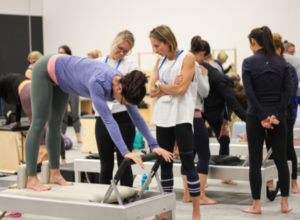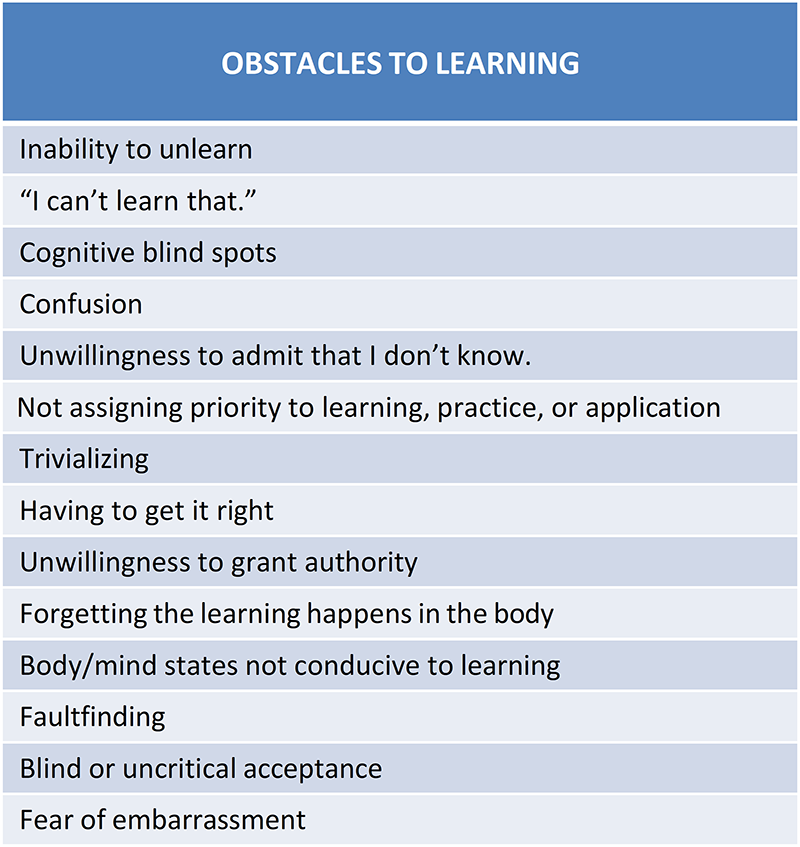
One of the great pleasures of teaching Pilates is that we, as teachers, are learning as much as our clients/students. Every class or session is an opportunity for new observations, anecdotes, ideas to inform our analysis and choices for the next class, the next client.
The question is, are our minds processing this in the best possible way? Are we really learning as best we can, or are we limited by our own blind spots, biases and desire for familiarity?
In some ways, the longer you teach, the easier it is to be wedded to what you know (or think you know!) and be less willing to change when there is a better approach. Experience is invaluable, but can become a curse.
Episode 95 of The Thinking Practitioner podcast reviews typical obstacles to learning and triggered a number of thoughts:
- The first was “oh yes I know all these” which I quickly realised was one of the obstacles!!
- Bringing a higher level of self-awareness to our learning habits – whether it’s on the job, whether it’s at the PAA conference – can allow us to extract more from that experience.
- It’s so hard to discard something you’ve always thought was right, was a good exercise, a good cue – only to find it’s now contradicted by evidence or there is a better way. Even harder to realise you’ve been wrong all along. We all know how much work it is for clients to replace their old habits with new. We have to be prepared do the same.
- Of course, clients are people too! It’s good to remind ourselves that they bring all of this baggage with them to class as well. Another reason to have a deep tool kit for teaching – so you can work around their learning obstacles as well as their physical/biomechanical ones.
- From a practical point of view, though, we need a teaching model, blueprint, rules, framework, assumptions to teach day in day out. There’s a careful tightrope to walk, being confident about what we know but being open to being wrong. As Walter Kotschnig, an American academic, is (possibly) attributed as first saying: “We must keep an open mind, but not so open that our brains fall out”
It’s worth taking the time to think about how you think, how you learn to get the best out of your thinking and your continuing education.
There’s nothing like a nifty list, and here is one from Til Luchau and Advanced-Trainings.com:

[I listen to this podcast a lot, even though it is not specifically about Pilates or movement training (the two presenters are body workers). It’s not particularly technical, but I like the balanced and reasonable way they think and talk about issues and there is often very clear application to movement work.]
Meredith Brooks
PAA Treasurer and Level 2 Professional Member
References:
The Thinking Practitioner podcast Episode 95: Learning to Learn (with Til Luchau & Whitney Lowe)

Comments are closed.